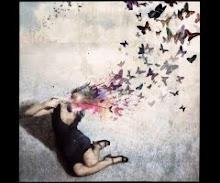I called my brother the other day to discuss the new Sherlock Holmes movie. We had meant to see it together over Christmas, but were thwarted by the Great Christmas Blizzard of '09. He went with his S.O. Misha, and I saw half of it in theaters (fire alarm) and watched the other half online.
"Overall I liked it," I said. "Robert Downey Jr. was well-casted, and my worst fear wasn't realized: they didn't turn Watson into a bumbling comic relief. And I liked the attention to detail, like him shooting the VR into the wall, and the thing about poisoning the dog."
My brother said, "Yeah, all that was pretty good. But I feel like the plot...like, the whole thing with Moriarty?"
I agreed that the Moriarty thing was completely unnecessary, and my brother said something almost revelatory: "I feel like the plot of this movie was completey tacked on. Can...can a plot be tacked on?"
And the more I thought about it, the more I realized he was right. The movie was well-cast, well-acted, beautifully costumed, and authentically shot (and I do so love gross, gritty, smoggy Victorian movies. Done right, they're just breathtaking.) But the plot. The PLOT. Why is it that, 10 minutes after closing the laptop after the movie was over, I couldn't remember a single thing about it? Other than the fact that it existed? I couldn't remember why Irene Adler was around, why she was in league with Moriarty, what Blackwood had done that was so terrible (human sacrifice? Or something?) and most of all, why I should care about any of this.
I realized, more and more, this seems to be a common theme with blockbuster movies. Take "Pirates of the Caribbean." I've seen the first one maybe four to six times, and I could really only give you a basic outline of the plot. The third movie, I couldn't even begin to recount. I remember it being convoluted for no good reason, or what I realize NOW was probably no good reason. But we're all aware what a bad-ass Johnny Depp's Capt. Jack Sparrow is, and how much fun those movies are otherwise.
Or The Dark Knight. Christian Bale is the best Batman ever, full stop. Aaron Eckhardt is equally perfect as Harvey Dent, and as someone who takes the character of Batman as seriously as any other literary figure, I do adore these movies. I've seen the Dark Knight at least four times, and as recently as two months ago.
Things I remember about the plot include:
-Boats with the potential to explode
-the Joker is there
-Asians laundering money?
-Lucuis Fox faces an ethical quandry
Up until recently, I really thought it was me, that these movies weren't sticking in my head because my memory isn't as crackerjack as I like to believe it is, or that I get distracted by all the whizz-bang. But that's silly. I have a pretty good mind for character and plot in books, so what was the difference in movies?
I think the real answer is, these movies spend $100 million to make me forget that ultimately, they lack substance. Now I know this will come as a SHOCK to you: Blockbusters are typically meant to be all pop and little substance, no? But I've come to realize most of these movies are written in such an absurdedly convoluted way so that you're almost distracted by the fact that they make no sense.
Maybe this is why I've always gravitated towards character dramas. Things move along at human speeds, in realisitc ways, with minimal amounts of distractions and flash. People learn stuff, and grow as human beings.
I mean, of COURSE I want a movie with Batman in it to have explosions. I just also would like it to make sense, somewhere along the line.
Sunday, February 7, 2010
Hollywood blockbusters and the death of plot
Labels:
Batman,
Brit,
movies,
Sherlock Holmes,
stuff I hate,
Victorian stories
Subscribe to:
Post Comments (Atom)

Totally. Plot nowadays is incidental to Christian Bale growling or Johnny Depp mincing and gurning. ALTHOUGH when I think about the films I really enjoy I couldn't tell you what the plot is. I mean stuff happens but it doesn't really constitute a plot, for example The Ice Storm is one of my all-time faves. We're introduced to the characters and then there's a climax. Maybe plot just isn't that important in films. I don't know!
ReplyDeletePlot used to be much more consistent and it not detract from the entertaining value of films.
ReplyDeleteIf we take a few examples, the Star Wars trilogy (1977-1983) or the first three Indiana Jones films, you see fast-paced stories with lots of different locations and events, but at every point you know what is going on and what is at stake. It is still true with recent animated movies (Wall-e, Finding Nemo, Ratatouille). On the other hand, in quite a few of these big-budget, CGI-heavy live action films (Die Hard 4, Pirates of the Caribean, etc), creative teams don't manage complexity anymore and just pile up climaxes on after the other just because they technically can.
Oh and by the way I love that your top 2 tags are Sherlock Holmes and Stuff I Hate.
ReplyDeleteExactly, Ludwig. It's especially tragic for something like Sherlock Holmes, as Victorian stories are often noted for the clarity of their plot and the immaculate pacing.
ReplyDeleteNicky! Yes. There are few things I care about in life. The tags basically explain them, and in their priority order, to a tee.
Here dear Janey, as a small consolation, is the best Sherlock Holmes film ever, directed and co-written by the wonderful Billy Wilder :
ReplyDeletehttp://www.dailyscript.com/scripts/holmes.pdf